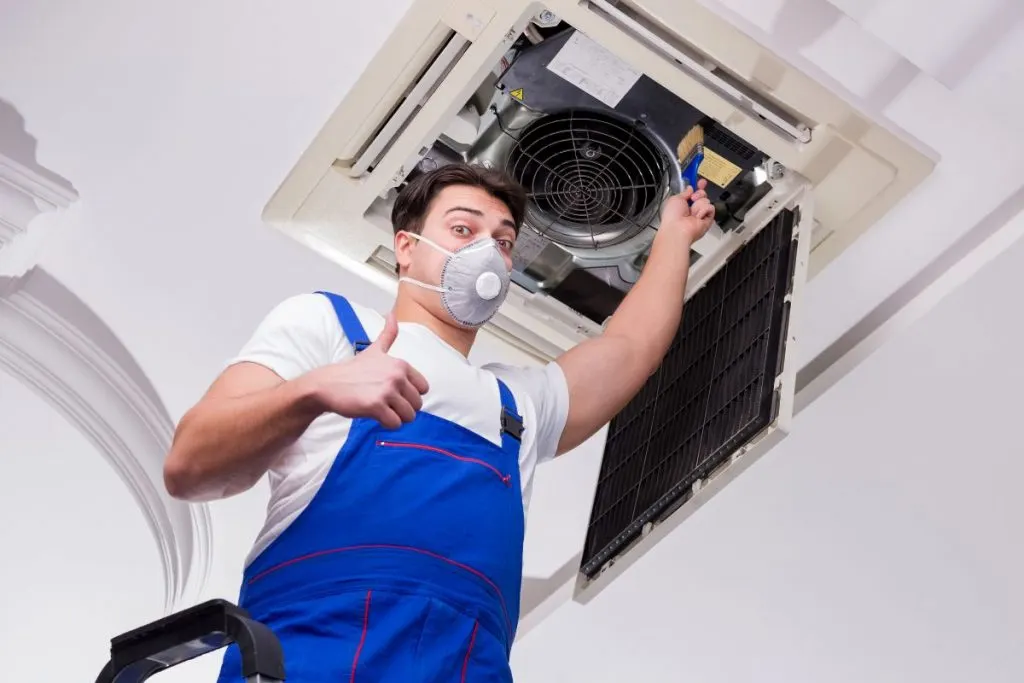It’s the time of year when the weather is starting to change and homeowners everywhere are starting to think about their heating and cooling systems. If you’re one of those people, then you are in the right place! In this blog post, we will discuss some tips and tricks that every homeowner should know about their HVAC system. We’ll cover topics such as how to save money on your energy bills, how to maintain your system, and how to troubleshoot common problems. Keep reading for more information!
HVAC tips and tricks you, as a homeowner should know
HVAC represents Heating, Ventilation, and Air Conditioning – the three main functions of your home’s temperature control system. And while you may not need to know everything about how your HVAC system works in order to keep it running smoothly, there are a few key tips and tricks that every homeowner should know. Of course, you can read more in this article, or you can always consult with a professional if you have specific questions or concerns about your system. Until you do, however, you can always start with the following tips:
Install a programmable thermostat
This will help you save money on your energy bills by allowing you to set specific temperatures for different times of the day. For example, you can lower the temperature when you’re away from home or asleep, and raise it again when you wake up or come home. Furthermore, you can also set different temperatures for different days of the week, depending on your schedule.
Seal leaks and insulate your home
Leaky windows and doors can let in drafts, which can make your home feel colder than it actually is. To combat this, be sure to seal any leaks with weatherstripping or caulk. You should also insulate your home by adding insulation to your attic and walls. Leak prevention and good insulation will ensure that your home retains heat during the winter, and keeps cool during the summer.
Change your air filter regularly
Your air filter plays a vital role in removing dust, pollen, and other allergens from the air in your home. However, it can only work effectively if it’s clean. For optimal performance, it’s recommended to replace your air filter every one to three months, depending on the type of filter. To ensure the job is done right, consider enlisting the help of professionals from trusted companies like To the T Plumbing Heating and Air. If you have pets or live in a dusty environment, more frequent changes may be necessary to maintain clean air and keep your HVAC system running efficiently.
Check your ductwork
If your home has central heating and cooling, then it likely has ductwork as well. Over time, however, this ductwork can become leaky, which can cause your system to work harder than it needs to. To avoid this, have your ductwork checked and sealed every few years. The ductwork in your attic is especially susceptible to leaks, so be sure to have it checked often.

Clean your coils
The coils in your HVAC system can become dirty over time, which can reduce its efficiency. To clean them, simply remove the access panel and use a soft brush to remove any dirt or dust buildup. You can also use a vacuum with a soft brush attachment to reach any difficult-to-reach areas. Coils require cleaning annually Furthermore, they can be cleaned more often if you have pets or live in a dusty area. Because of this, it’s important to know where your coils are located and how to access them.
Adjust the temperature setting when you’re not home
You can save money on your energy bills by adjusting the temperature setting when you’re not home. For example, if you’re going to be gone for an extended period of time, you can set the temperature to a lower setting. This will help to reduce the amount of energy your system uses while you’re away. When you are not home, you can also set the temperature to a higher setting. This will help to reduce the amount of time your system needs to run in order to maintain the desired temperature.
Use a ceiling fan in conjunction with your AC unit
Ceiling fans can help to circulate the cool air from your AC unit, which can make your home feel more comfortable. Furthermore, using a ceiling fan can help to reduce your energy usage, as it takes less energy to run a fan than it does to run an AC unit. A ceiling fan can also help to circulate the warm air from your heater in the winter.
These are just a few of the many tips and tricks you can use to maintain your HVAC system. By following these tips, you can help to prolong the life of your system and improve its efficiency. Furthermore, you can also save money on your energy bills by using less energy. If you have any questions or concerns about your HVAC system, be sure to contact a professional for more information.

